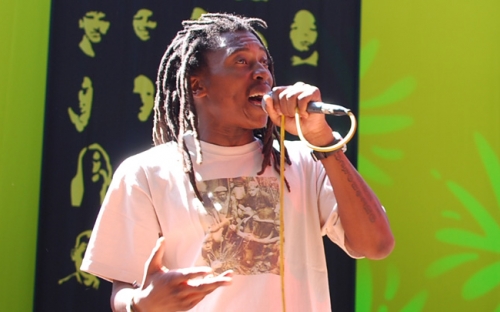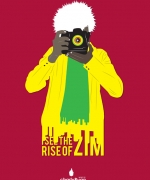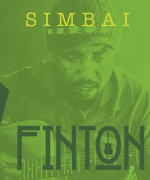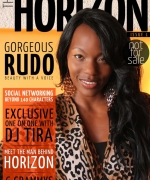Who is Outspoken?
This is the first in a series of three dialogues with one of Zimbabwe’s illustrious MCs Outspoken.
POVO: How are you doing man?
OUT: I'm cool man
POVO: Can you give us a background about Outspoken and what brought you into the game.
OUT: I'm the last born in a family of four. I have one sister, the first born and two brothers between me and her. I grew up in Avonlea, Greencroft area where I also went to school. l didn't like school, so I went there and also sought self-education which is why I do what I do now. At school, it was always a situation where you would be tested and graded on your knowledge of the tests they give you. But then the questions that I wanted answered were not being asked and were not being offered to me, that kind of knowledge is not on offer. Yeah and that’s funny because my father was in the Ministry of education at the time I was in primary school. So, it was like "I am doing this for you!" but self-education is for me.
POVO: Would you define yourself as a rapper or poet?
OUT: I actually don't define myself. The medium I use currently is the spoken and written word. But then it’s not confined to that. It goes in many directions from the type of music I get backed with to the type of music I listen to. I think that the things I influence and the things that influence me are part of my greater definition which is actually hard to fathom. I speak rhythmically on beats so you can say I am an MC. I sometimes speak my mind so you can call me a poet.
POVO: What do you think about the development and appreciation of the spoken word in Zimbabwe?
OUT: Going through what we have gone through, we have seen a lot of people facing so many challenges that their only outlet to speak their mind is the spoken word. At the same time I think it also robbed people like spoken word artist from creativity. Now it’s mainly focusing on trials and tribulations. You now have to pick relevant topics. It’s not about speaking what’s on your mind anymore. In a way it becomes a form of free propaganda. It’s propagated by one’s situation and your environment but you are also subject to that environment so you are really not expressing yourself. You are expressing self through the environment you are living in and I think that kind of jeopardizes and compromises the greater artist that you are. When it communes to appreciation it’s a beautiful outlet. People get time to reflect on the scenarios and situations they are caught up in. That in itself is a positive thing regardless how I see the outcome of the actual spoken word artist. The art in itself is progressing and it is being appreciated and there is a movement now.
POVO: How do you relate to other artists of spoken word?
OUT: These are people I see every day – friends and associates included. The good thing about Zimbabwean artists is that they are not isolated from the people. There are organizations that front the spoken word movement such as Magamba Cultural Activists Network which I co-founded with Comrade Fatso to coordinate monthly spoken word events at the Mannenberg nightclub. It’s according people a podium to express themselves and show the many facets of spoken word with music, theatre and dance. There is also the House of Hunger Poetry Slam first Saturday of every month and Chimoto coming up soon with cooperation from Alliance Francaise.
POVO: Do you have an association that represents your interests and welfare in the industry. Don’t you feel you need protection from persecution etc?
OUT: I don't consider that because that limits your creativity and makes you overly conscious of what you say lest you get in trouble with the authorities. The question that I am constantly asking myself is whether something needs to be said or not. I am not worried about the outcome of my acts but just present on any sticking issues. For me, it’s more important to just move and connect. If people do get in trouble we do support each other.
POVO: At HIFA you were dubbed as a protest poet. Has that gotten you in any sort of trouble with the authorities?
OUT: I speak about things that reflect on self, where ‘self’ is a member of society and society is governed by politics and when you focus on the betterment of society and communities you become at loggerheads with government. That’s when you become a "protest poet". I just speak about the betterment of self, how you should reflect upon self in order to better self and to find strength, power and freedom within you. But then that’s something that government doesn’t want emphasized, because they take the power from people and give an illusion that they are delivering the people’s mandate. Nonetheless, I don't think you can address issues in a way that is overtly offensive. It’s a truth that I speak in a none offensive way. I am only concerned with my message reaching society or a particular range of people in a beautiful, positive and uplifting way.
In the 2nd part of the interview, Outspoken gives us his view of where Zimbabwe is and where it’s going.





